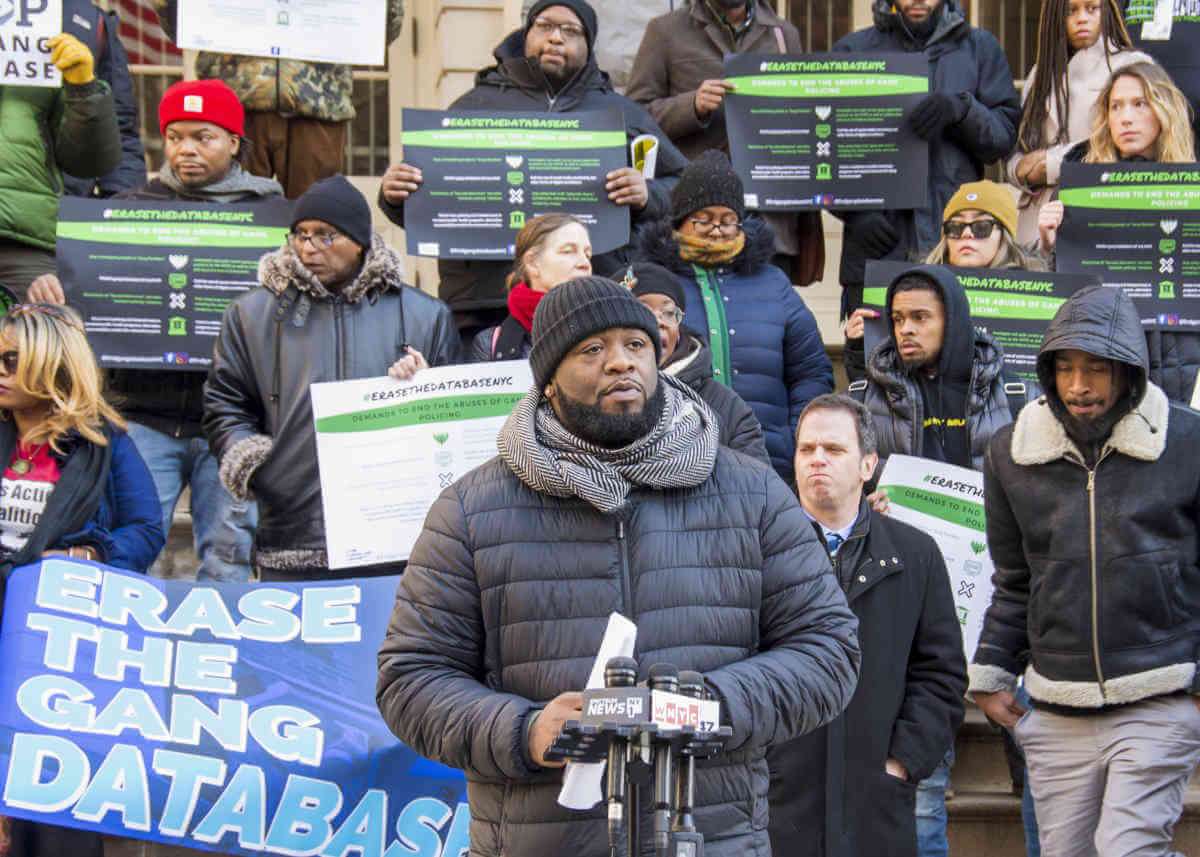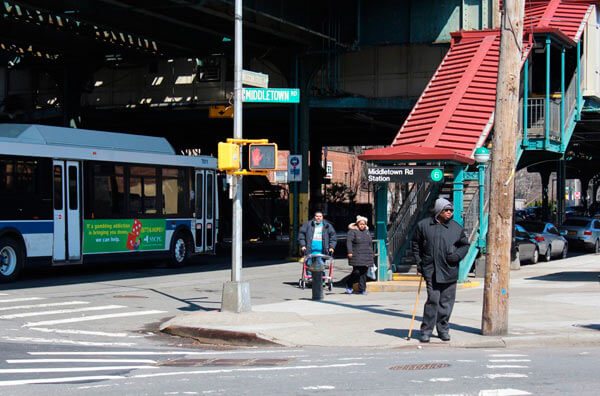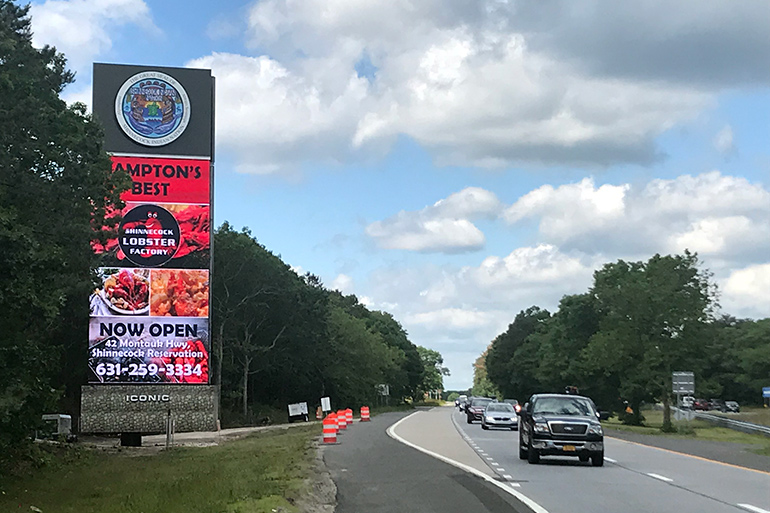Representatives from local criminal justice advocacy organizations and area public defenders, elected officials and New Yorkers from over-policed communities gathered at City Hall last Thursday to announce a new campaign — “Erase The Database NYC” — to abolish what they said is the New York City Police Department’s (NYPD) secretive gang database.
Since 2014, advocates say thousands of New Yorkers – including hundreds of children – have been added to the NYPD’s gang database.
The campaign’s demands include: Stop criminalizing people as “gang members”; abolish gang databases (of any kind); discontinue all “focused deterrence” and other “precision policing” initiatives; stop using large scale “gang takedowns,” including the employment of state and federal conspiracy charges; and end the use of social media monitoring and other forms of digital surveillance; invest in additional credible messenger programs and expand resources for gang-involved people.
Others include: Divest from overly aggressive policing and instead invest in increased public health programs, sustainable housing, employment development, schools, conflict transformation and alternative accountability models like restorative justice; and investigate and audit current gang suppression practices by the NYPD, as well as collaboration with local and federal prosecutors.
Earlier this year, CUNY School of Law released a new report on the “Bronx 120” federal gang takedown of 2016, the largest gang takedown in the city’s history.
The report showed how many of those targeted by the NYPD and federal prosecutors weren’t alleged to be gang members, had no prior felonies and were not even accused of violence.
In 2017, activists and attorneys demanded an investigation into NYPD gang tactics by the department’s Inspector General.
“The NYPD’s punitive and over-inclusive gang database has ensnared thousands of our clients, many who have never even been convicted of a crime,” said Anthony Posada, Supervising Attorney of the Community Justice Unit at The Legal Aid Society. “This campaign will build on our work to illuminate the abuses of this practice. New York City must follow the example led by other jurisdictions and abolish its gang database once and for all.”
Lisa Schreibersdorf, executive director of Brooklyn Defender Services, said: “Gang databases often hinge on thin evidence that does not stand up to scrutiny, yet they are maintained because of the power of the gang label to inspire fear, drive aggressive policing and prosecutions, and ultimately yield harsher outcomes for the people we represent, including deportation based on the most trivial of offenses.
“Among other necessary reforms, it’s time to end the criminalization of friendship and community and dismantle the gang database, which only further institutionalizes profiling-based policing,” she added.
“For true community safety, New Yorkers need good jobs, stable housing, and quality healthcare, including mental healthcare and drug treatment, as well as adequately funded community-based cure violence programs.”




















